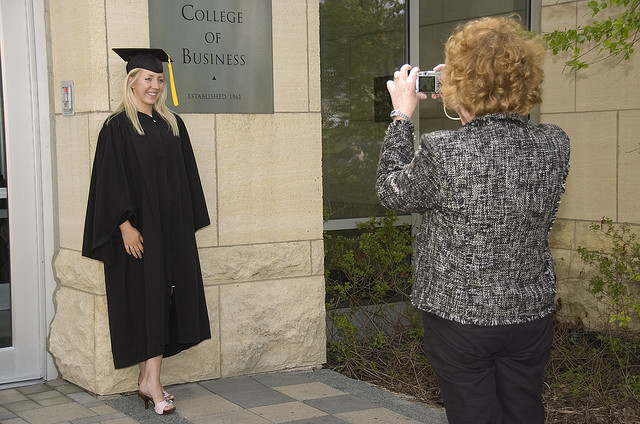Go to college, major in business, get the big job, make money, have a great life. It is the plan for many. A degree in business is the most awarded degree in America at the undergraduate and graduate level. According to a recently released Gallup study, there might be a few trap streets in this life map.
The Gallup study surveyed nearly 30,000 college graduates earlier this year and the results for business majors were less than inspiring. Participants were asked whether they agreed with the statement, “I am deeply interested in the work I do.” College majors were divided into the four broad categories of social sciences/education, sciences/engineering, arts and humanities and business. Nearly half (47%) of social science and education majors strongly agreed they were interested in their work. Business majors? 37%.
Being in a classroom full of third graders probably requires more “interest” than balancing spreadsheets in QuickBooks. At least the business degree will lead to some major dinero, right? Not necessarily. According to the study, business majors cannot even catch a break in financial well-being, which is defined as reducing financial stress and feeling financially secure. In this Google-Apple-Facebook era, science and engineering majors predictably led that category, with 48% feeling they “thrive” in financial well-being. Business majors edge out the social sciences and education majors, 43% to 42%. At least business majors outperformed the do-gooder humanities majors who came in last with 39%.
HIGHER EDUCATION, HIGHER LIVING
Financial security and job interest aside, perhaps the most alarming result for business majors is they lag significantly in what Gallup called “purpose well-being.” It was one of five well-being categories (others are social, financial, community and physical) surveyed and is defined as liking what you do each day and being motivated to achieve your goals. Only 48% of business majors thrive in this category, compared with 56% of social sciences and education majors, 54% of sciences and engineering majors and 53% of art and humanities majors.
A notable finding of the study concerns the pursuit of graduate studies. Career interest and purpose well-being increased significantly in all majors when participants pursued master’s degrees. Career interest increased 7% for business majors with graduate studies and purpose well-being increased 10%.
All of this might have less to do with the actual work, school attended or major and more to do with what the students do in college and how they experience it. According to the study, there was no difference in employment engagement between graduates of the U.S. News top 100 schools and schools outside of the top 100. There was also no difference in well-being regardless of graduation from a top 100 school or not. What’s more, there was no difference in work engagement or well-being between graduates of public or private institutions.
ENGAGEMENT AND WELL-BEING CONNECTED
What did make the participants two times more likely to be engaged in work and three times more likely to feel like they are thriving in well-being was having a professor who made them excited about learning and cared about them as a person and had a mentor to encourage them to pursue their dreams. Additionally, if participants felt they were well prepared for life outside of the campus, they were three times more likely to be engaged in work. The study also found that those engaged at work are five times more likely to feel they are thriving in purpose well-being.
The message is clear. There is at least a connection between feeling supported and mentored in college with job engagement and excitement and our overall well-being. But it doesn’t completely fall on the college experience. There comes a time when making the right choice on a career is essential.
NO MONEY, NO PROBLEMS?
In 2013, researchers from Duke University’s Fuqua School of Business found there is a phenomenon called “effort aversion.” Essentially, workers will choose a job requiring less effort even if the job with more effort will provide a better working experience. Workers were also found to choose the more effortless job despite being paid less.
It is a constant topic of discussion to keep workers happy and motivated. So why are business majors lagging behind in these categories? It could be the general nature of the typical business job. Another 2013 study surveyed more than 2,000 “money (extrinsic) lawyers” and “service (intrinsic) lawyers.” The findings revealed the service lawyers, despite being paid less, had higher well-being and were less likely to abuse alcohol. Intrinsic values are often defined as helping others, having rewarding relationships and self-acceptance. Extrinsic values are defined as achieving wealth, luxury, status and physical attractiveness.
DON’T MISS: SURPRISE: BIZ GRADS UNDEREMPLOYED?












Questions about this article? Email us or leave a comment below.